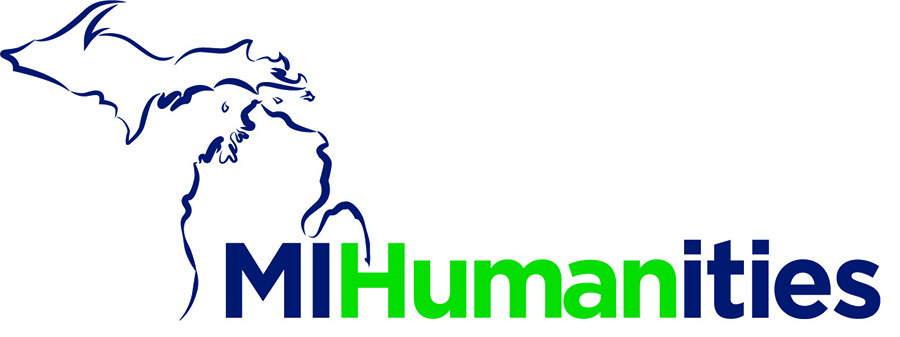Stay tuned for the 2023 theme!
The 2022 theme – Toward a More Perfect Union
The 2021 theme – Advancing the Rule of Law Now
The 2020 celebration of the 100th Anniversary of the 19th Amendment
The 2019 theme – Free Speech, Free Press, Free Society
Celebrate the 2019 Law Day theme with Mary Beth Tinker and MCCE. Every year, the American Bar Association (ABA) announces a Law Day Theme. ABA’s 2019 announced theme is Free Press, Free Speech, and Free Society.
We are celebrating this year with an essay contest, speaking events with Mary Beth Tinker and a MCCE trivia night fundraiser hosted by Mary Beth herself.
Join Mary Beth Tinker as she tours Michigan to visit students and champions of Free Speech and Free Press Law Day week. As the court case Tinker v Des Moines Independent School District (1969) turns 50, join us in analyzing the First Amendment today. Mary Beth will share the stage with students who champion this theme and who represent Free Speech and Free Press. Download the all event flyer here.
Students are invited to think, research, write, reflect and rewrite! Enter the 2019 Law Day Essay Contest by submitting a 500 word essay. An award will given to both a middle school and a high school student.
Topics to be considered include:
Now Due April 22, 2019. Submit essay via email: info@miciviced.org Cover page: Please include student name, teacher and course name (if enrolled in a course), grade, school, principal name, school district, school address, student/parent/guardian email, student/parent/guardian phone, school contact email, school contact phone.
* Please keep you name only on the cover page and not on the essay pages.
**Turning in an essay permits the Michigan Center for Civic Education to post names, photos, and essays online.
Thank you to our sponsors.

Please visit to learn more about Mary Beth Tinker. Excellent resources including lesson plans to prepare your students can be found here:
from Annenberg: https://www.annenbergclassroom.org/resource/freedom-speech-finding-limits/
this TedTalk featuring Mary Beth Tinker: https://www.youtube.com/watch?v=sxvSftU9Ze0
These plans from Landmark Supreme Court Cases: https://www.landmarkcases.org/cases/tinker-v-des-moines
Visit: https://tinkertourusa.org/teachers/resources/ for more!
“In December 1965, Mary Beth Tinker was part of a small group of students who made history by wearing simple black armbands to school. Her brother, John, and their friend Chris Eckhardt were among the others. At the time, history was the last thing on their minds. Mary Beth was a shy 13-year-old, John had just turned 15, and Chris was 16.
But they did make history, eventually winning a landmark Supreme Court ruling in favor of First Amendment rights for students.
The year was 1965, when about 1000 soldiers had been killed in Vietnam. Inspired by an antiwar rally in Washington, DC, the students wore the armbands to mourn the dead and to support Robert F. Kennedy’s call for a Christmas truce. A few hours after school started, Mary Beth was called out of algebra class and told to remove her armband by the vice principal. She did, but was suspended anyway. Within days, others were punished as well.
Four years later, following heated school board meetings, death threats to our families, legal help from the ACLU and two lower federal court cases, the United States Supreme Court heard the students’ case.
On February 24, 1969, in a 7-2 ruling, the students won.
The Tinker ruling, officially known as Tinker v. Independent Community School District No. 21, 393 U.S. 503 (1969), is still cited in nearly every student First Amendment case, and almost all American civics and history textbooks refer to it. The case fascinates students, who often use it for their History Day project. In 2012, Mary Beth was included in the book, 101 Changemakers: Rebels and Radicals Who Changed US History, along with such notable figures as Rosa Parks, Mark Twain, Albert Einstein and Martin Luther King.
There are a number of other good resources about students’ rights & the “Tinker” case. You will find some of them on our page, Other Resources We Like. But, here are a few as well:
Consider the ABA’s Leon Jaworski Program Questions.
This year marks the centennial of Abrams v. United States, in which the concept of the marketplace of ideas first entered American jurisprudence in Justice Oliver Wendell Holmes’ famous dissent. He argued that the “ultimate good desired is best reached by free trade in ideas” and “that the best test of truth is the power of the thought to get itself accepted in the competition of the market.”
Framing Questions
From: https://www.americanbar.org/groups/public_education/Programs/jaworski-public-programs/2019-jaworski-public-programs/
*The comments and views of our guest speakers are entirely their own.

MCCE champions education for active and informed engagement in the practice of democracy.
Copyright © 2025 | Michigan Center for Civic Education | All Rights Reserved - Powered by Multi Chaos Media